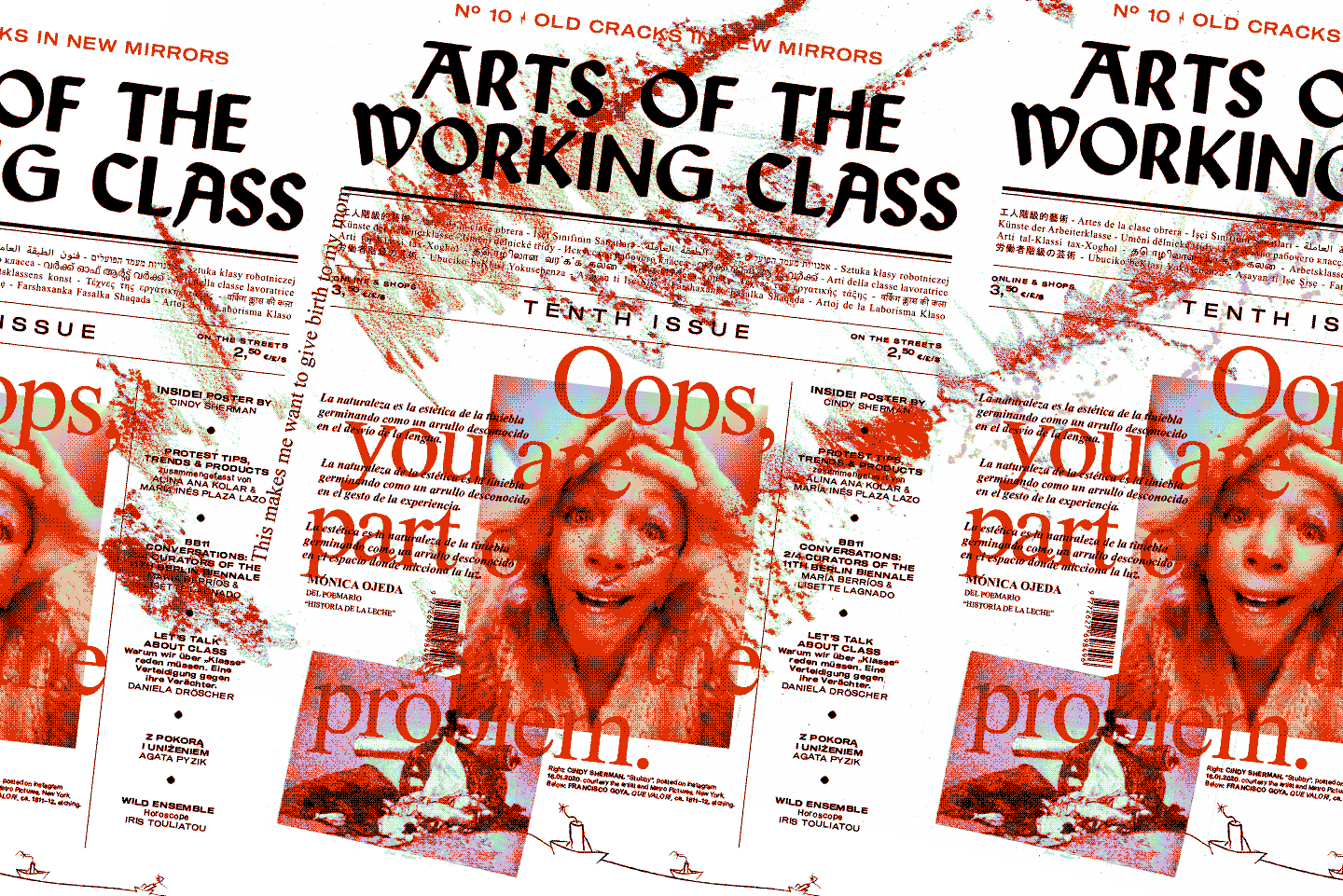February 27–April 10, 2020
Suzie Shride, Girardigasse 10, 1060 Vienna
Cavendish Square, London
Kreuzberg Pavilion, Naunynstraße 53, 10999 Berlin
Glockenbachwerkstatt, Kulturzentrum, Blumenstraße 7, 80331 München
Museum Villa Stuck, Prinzregentenstr. 60, D-81675 München
For radical equality, we need to recalibrate. But the question is not how and where to start when everything seems to be broken, when opposition to social hierarchy is repeatedly defeated. The question is: Who are we in relation to others? “Old Cracks in New Mirrors” aims to account for political conditions inscribed into contemporary social behaviors all over the globe. Revolutionary practices here are little buds that burst once phenology allows for dissatisfaction’s energy to converge. While revolution might be impossible within capitalist realism, the issue looks at possibilities to sculpt structural change towards social equality… differently.
Century-old lore holds fast to the idea that a mirror is a reflection of the world, one’s appearance—and one’s soul. For the superstitious, breaking a mirror also means breaking the soul into pieces. For the survival of our souls in times of artificial viruses of all sorts, we need societies to cultivate solidarity, humans to continually become human, and capitalist hegemony to, yes, R.I.P.
Four associate editors tightened the threads in AWC’s first issue of 2020: Stephanie Bailey, Melissa Canbaz, Övül Ö. Durmuşoğlu and Àngels Miralda Tena.
Malak Helmy, Himali Singh Soin and Wong Kit Yi, who have each responded to the spectre of history’s repetition by creating spaces in which that repetition might become unbound, are brought together by Bailey. Singh Soin’s extraction of phrases from the Indian constitution, came together as a poem that makes a case for “Every person who is or is deemed to be.” Wong’s “Karaoke Lecture” about a common land and cloud riders, as well as Helmy’s personal account of a world that reaches as far out to the stars, return us to the heart.
Structures of discriminating subjectivation that changed in the past, but also found new forms, is what Canbaz brings in by inviting Çiğdem Inan and Cana Bilir-Meier to open up layers of memory production and migratory life, spreading opulently throughout the whole issue.
Mapping the expanded geography of inequality, Bong Joon-ho’s celebrated film Parasite is reviewed by Durmuşoğlu, who also thinks of all those who follow their conscience for justice and equality, and continue to risk incalculably more, may it be on the streets or in the courtrooms: Nancy Naser Al-Deen and Osman Kavala prompt our engagement in these ongoing situations, while Zach Blas encourages us to think of new ways of resistance outside the internet.
In this embittered decade’s end, Miralda Tena’s contributions with Zehra Dogan, Carolina Martínez Sánchez, as well as Slavs and Tatars take on the topic with a wave of popular solidarity washed across the Middle East, Europe, and the Americas, showing us that we are yet to see if the demands contesting the legitimacy of the state will reveal any cracks in our mirrors. In case we get lost in them, issue 10 has some tips, trends and products for you: a survival kit in times where we have to ask ourselves how protest does not become a commodity.
Contributors: Cana Bilir-Meier, María Berríos, Zach Blas, Eric Bordeleau, Nancy Naser Al-Deen, Mariana Castillo Deball, Fred Dewey, Zehra Doğan, Daniela Dröscher, Heinrich Dunst, Hallie Frost, Nicolas Gravel, Nicoline van Harskamp, Malak Helmy, Çiğdem Inan, Verena Issel, Osman Kavala, Lisette Lagnado, Carolina Martínez Sánchez, Gina Merz, Pinar Ogrenci, Monica Ojeda, Chris Paxton, Agata Pyzik, Mohammad Salemy, Myriam Schellbach, Cindy Sherman, Himali Singh Soin, Slavs & Tartars, Vivien Tauchmann, Iris Touliatou, Quynh Tran, Wong Kit Yi.
Edited by Alina Ana Kolar, María Inés Plaza Lazo, Pauł Sochacki

